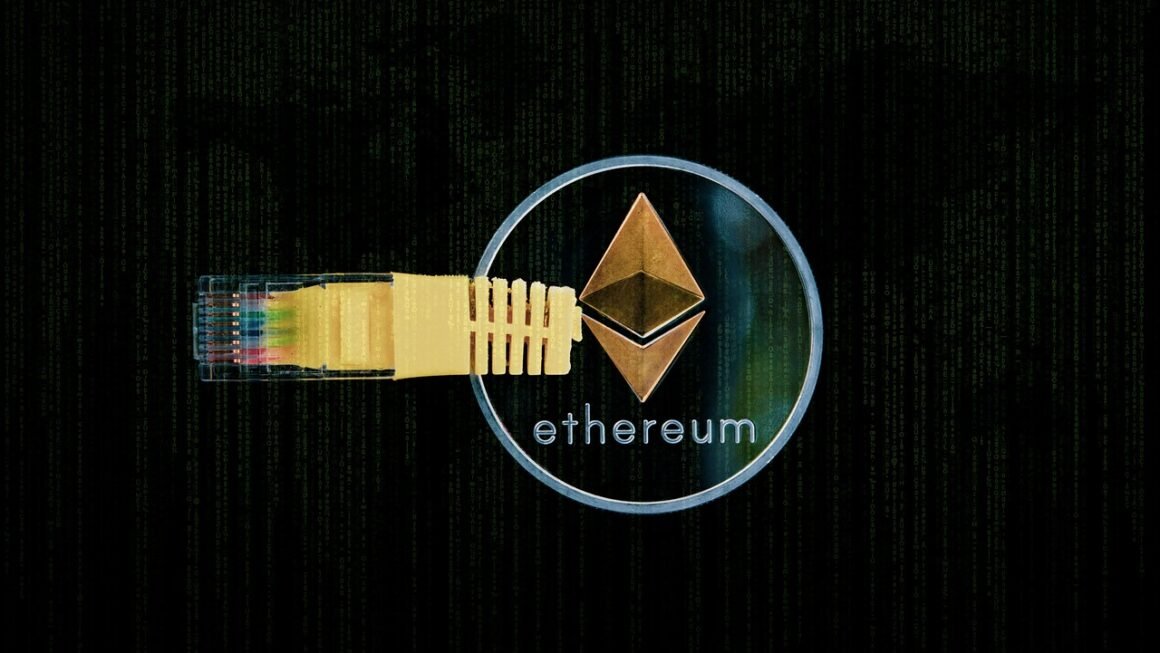Navigating the world of blockchain and decentralized applications (dApps) can feel like sailing uncharted waters. Smart contracts, the self-executing agreements that power these applications, are the bedrock of trust and security. However, even the most carefully crafted code can contain vulnerabilities, potentially leading to devastating financial losses. That’s where smart contract audits come in, acting as a crucial safeguard against unforeseen risks.
What is a Smart Contract Audit?
A smart contract audit is a comprehensive review of a smart contract’s code by a team of security experts. The goal is to identify potential vulnerabilities, security flaws, and areas for improvement before the contract is deployed to a live blockchain network. Think of it as a rigorous code review focused specifically on security best practices within the blockchain environment. This process is essential for ensuring the integrity and reliability of the smart contract and the dApp it supports.
Why are Smart Contract Audits Necessary?
The immutable nature of blockchains makes smart contract audits critically important. Once deployed, a smart contract cannot be easily modified or patched. Therefore, any vulnerability present in the initial code will remain permanently, making it a prime target for malicious actors.
- Prevent Financial Losses: A vulnerable smart contract can be exploited to steal funds, manipulate data, or disrupt the functionality of the dApp.
- Protect User Data: Many smart contracts handle sensitive user data, and vulnerabilities can expose this information to unauthorized access.
- Enhance Trust and Reputation: Demonstrating a commitment to security through audits builds trust with users and investors. A positive audit report can significantly enhance the reputation of a project.
- Meet Regulatory Requirements: As the blockchain industry matures, regulatory bodies are increasingly requiring smart contract audits for certain types of dApps.
- Example: The DAO hack in 2016, which resulted in the theft of millions of dollars worth of Ether, highlights the devastating consequences of unchecked vulnerabilities in smart contracts. A thorough audit could have prevented this incident.
What Does a Smart Contract Audit Cover?
A typical smart contract audit covers a wide range of potential issues, including:
- Vulnerability Analysis: Identifying common vulnerabilities such as reentrancy attacks, integer overflows, and denial-of-service attacks.
- Gas Optimization: Analyzing the code for inefficiencies that can lead to excessive gas consumption, reducing transaction costs for users.
- Code Quality: Assessing the overall code quality, including readability, maintainability, and adherence to coding best practices.
- Business Logic Validation: Ensuring that the smart contract correctly implements the intended business logic and meets the specified requirements.
- Compliance: Verifying that the smart contract complies with relevant regulatory requirements and industry standards.
- Access Control: Checking that access to sensitive functions and data is properly restricted to authorized users.
- Example: Auditors will meticulously review the code for potential vulnerabilities related to token transfers, particularly focusing on mechanisms that prevent double-spending or unauthorized minting.
The Smart Contract Audit Process
Understanding the audit process can help you prepare your smart contract for a successful review.
Steps Involved in an Audit
- Scoping: Defining the scope of the audit, including the specific smart contracts to be reviewed and the objectives of the audit. This involves a discussion between the project team and the auditing firm to understand the functionality and purpose of the smart contracts.
- Static Analysis: Using automated tools to analyze the code for common vulnerabilities and coding errors.
- Manual Review: Auditors manually review the code line by line to identify more complex vulnerabilities and to assess the overall code quality. This is often the most crucial stage, as it relies on the expertise and experience of the auditors.
- Dynamic Analysis: Testing the smart contract in a simulated environment to identify vulnerabilities that may not be apparent from static analysis. This often involves writing unit tests and integration tests to verify the behavior of the smart contract under different conditions.
- Reporting: The auditing firm provides a detailed report outlining the findings of the audit, including a list of vulnerabilities, their severity, and recommendations for remediation.
- Remediation: The project team addresses the vulnerabilities identified in the audit report and implements the recommended fixes.
- Re-audit: The auditing firm reviews the fixes to ensure that they have been implemented correctly and that the vulnerabilities have been effectively resolved. This ensures that the implemented fixes have not introduced any new issues.
Choosing the Right Audit Firm
Selecting a reputable and experienced auditing firm is crucial for a successful audit. Consider the following factors:
- Experience: Look for a firm with a proven track record of auditing similar smart contracts. Review case studies or testimonials from previous clients.
- Expertise: Ensure that the auditors have deep knowledge of blockchain technology, smart contract security, and common vulnerabilities. Inquire about the team’s certifications and qualifications.
- Methodology: Understand the audit methodology used by the firm, including the tools and techniques they employ.
- Reputation: Check the firm’s reputation within the blockchain community. Seek recommendations from other developers and projects.
- Communication: Choose a firm that communicates clearly and effectively throughout the audit process. Regular communication helps ensure that the project team understands the findings and can address the vulnerabilities in a timely manner.
- Example: Before engaging an audit firm, ask for sample reports from previous audits to assess the level of detail and the clarity of the findings.
Preparing for a Smart Contract Audit
Proper preparation can streamline the audit process and reduce the likelihood of finding critical vulnerabilities.
Best Practices for Writing Secure Smart Contracts
- Follow Secure Coding Practices: Adhere to established coding best practices for smart contracts, such as using safe math libraries to prevent integer overflows.
- Implement Proper Access Control: Restrict access to sensitive functions and data to authorized users only.
- Use Up-to-Date Libraries: Leverage well-vetted and up-to-date libraries for common tasks, such as token transfers.
- Write Comprehensive Unit Tests: Thoroughly test the smart contract with a wide range of inputs and scenarios.
- Conduct Internal Code Reviews: Have multiple developers review the code to identify potential issues.
- Formal Verification: For critical smart contracts, consider using formal verification techniques to mathematically prove the correctness of the code.
- Example: Implement a circuit breaker pattern to allow the contract owner to temporarily disable critical functionality in case of a suspected attack.
Documentation is Key
Comprehensive documentation is essential for facilitating a smooth and efficient audit.
- Detailed Comments: Add clear and concise comments to the code to explain the purpose and functionality of each function.
- Architecture Diagrams: Provide diagrams that illustrate the overall architecture of the dApp and the relationships between different smart contracts.
- API Documentation: Document the API endpoints and data structures used by the smart contract.
- Business Logic Description: Clearly describe the intended business logic of the smart contract and how it is implemented in the code.
- Deployment Instructions: Provide detailed instructions on how to deploy and interact with the smart contract.
- Example: Include a README file that provides an overview of the project, its purpose, and instructions for setting up the development environment.
The Cost of a Smart Contract Audit
The cost of a smart contract audit can vary significantly depending on the complexity of the smart contract, the size of the codebase, and the reputation of the auditing firm.
Factors Affecting the Cost
- Complexity of the Smart Contract: More complex smart contracts require more time and effort to audit, leading to higher costs.
- Size of the Codebase: Larger codebases typically require more extensive reviews, increasing the audit cost.
- Reputation of the Audit Firm: More established and reputable audit firms typically charge higher fees.
- Type of Audit: Different types of audits, such as security audits, gas optimization audits, and formal verification audits, may have different pricing structures.
- Turnaround Time: Expedited audits may incur higher fees due to the need for additional resources and faster turnaround times.
- Example: A simple ERC-20 token contract may cost a few thousand dollars to audit, while a complex DeFi protocol with multiple interconnected smart contracts could cost tens of thousands of dollars.
Budgeting for a Smart Contract Audit
It’s important to factor in the cost of a smart contract audit when planning your dApp development budget.
- Get Multiple Quotes: Obtain quotes from several different auditing firms to compare pricing and services.
- Prioritize Critical Contracts: Focus on auditing the most critical smart contracts first to minimize the risk of vulnerabilities in core functionality.
- Consider Ongoing Audits: Plan for regular audits to identify and address new vulnerabilities as they emerge.
- Example: Allocate 5-10% of your total development budget for smart contract audits to ensure adequate security coverage.
Conclusion
Smart contract audits are not merely a formality; they are a critical investment in the security, reliability, and longevity of your blockchain project. By proactively identifying and addressing potential vulnerabilities, you can protect your users, your funds, and your reputation. While the cost of an audit may seem significant, it pales in comparison to the potential financial and reputational damage that can result from a successful attack. Embrace the power of smart contract audits to build a more secure and trustworthy blockchain ecosystem.



